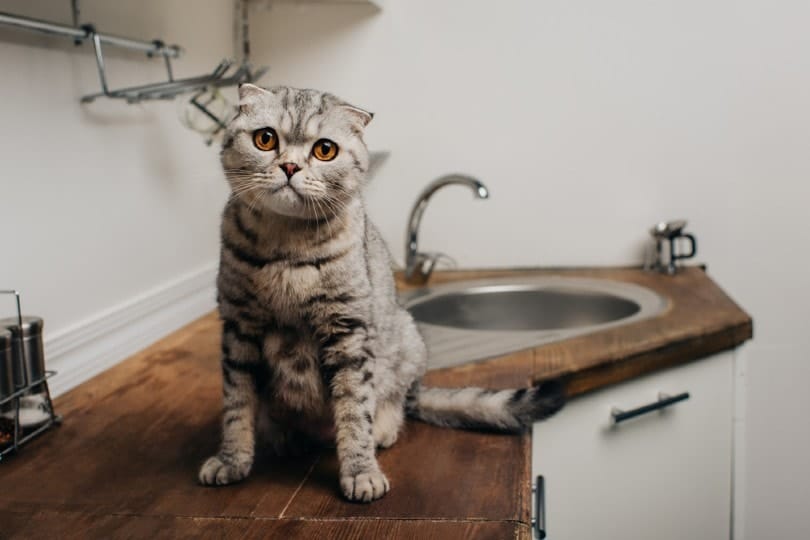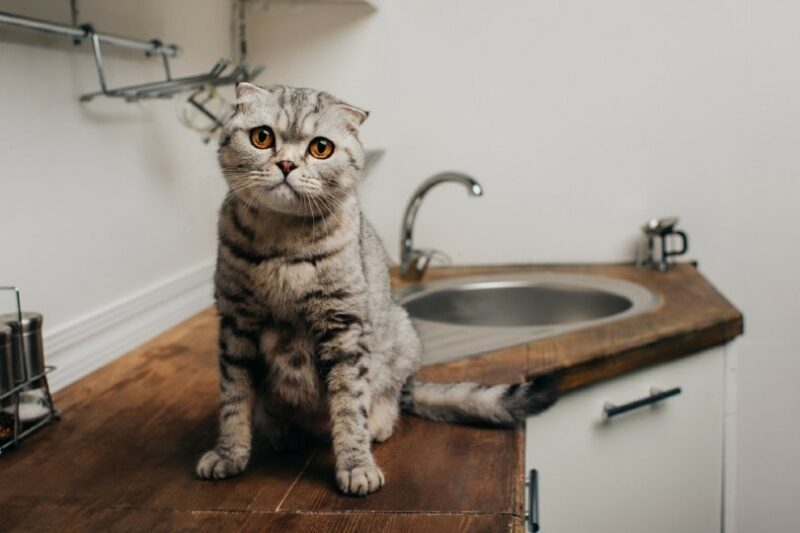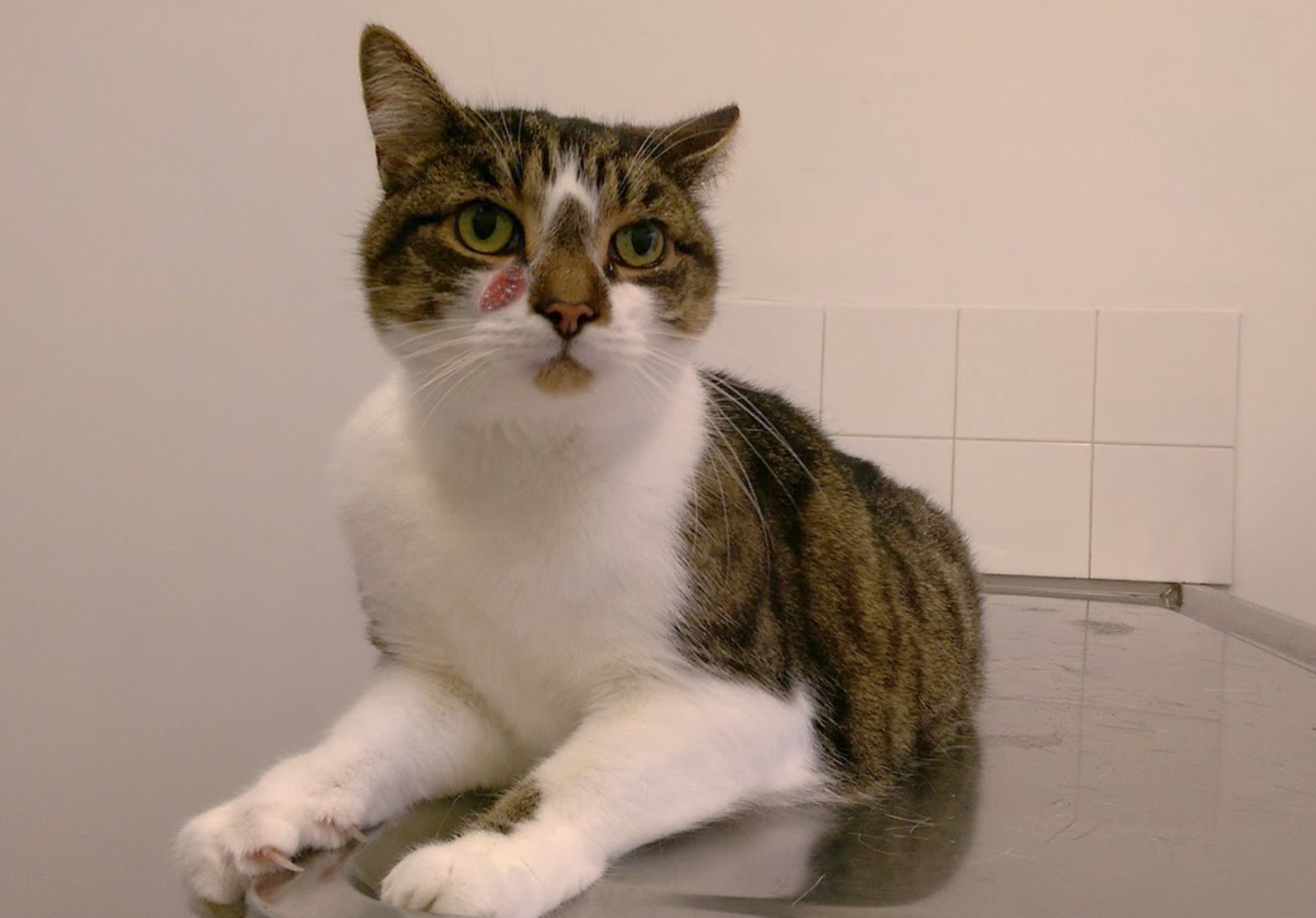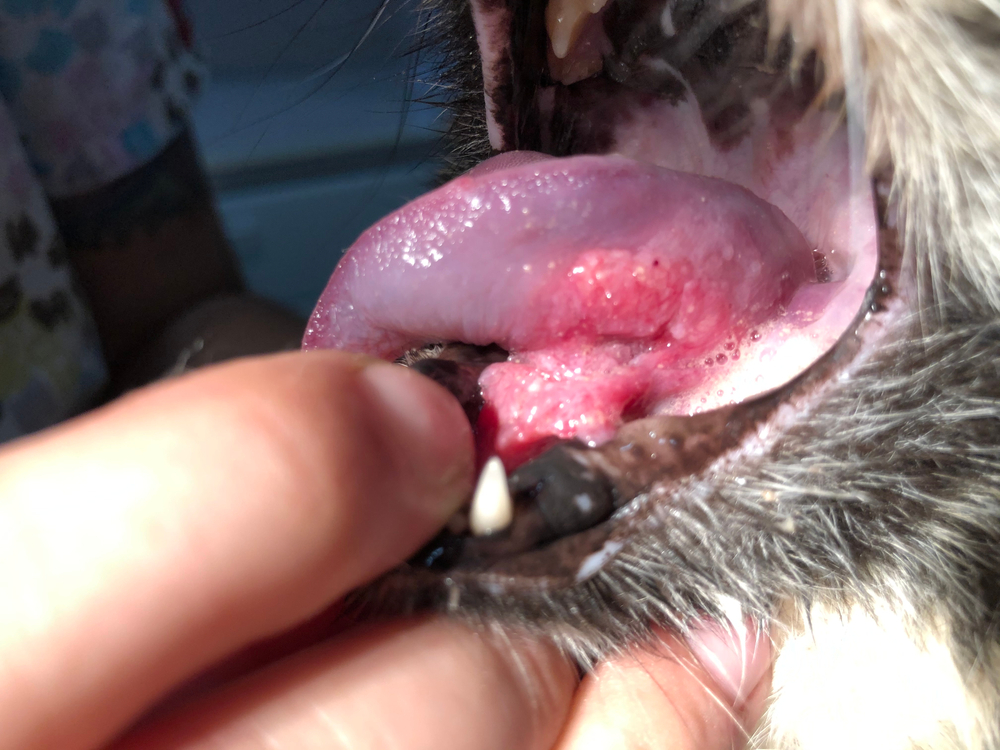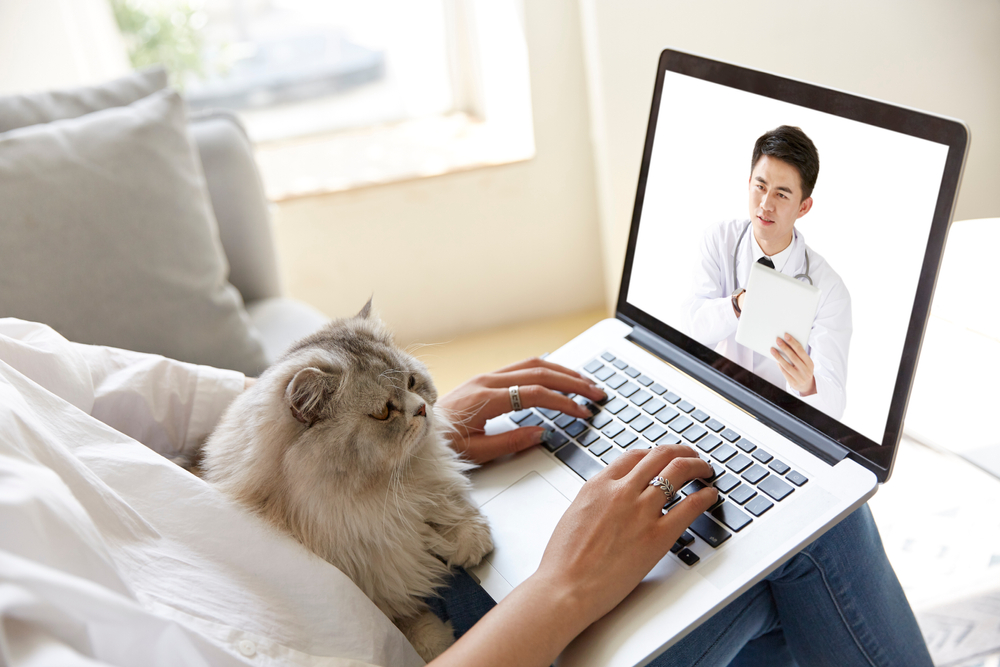Chlorine bleach is one of the oldest and most commonly used disinfectants around the house and in commercial or industrial settings. Although it might seem obvious to us that bleach isn’t safe for anyone to drink, our cats sometimes seem to have a different idea—yikes!
Can Bleach Hurt a Cat?
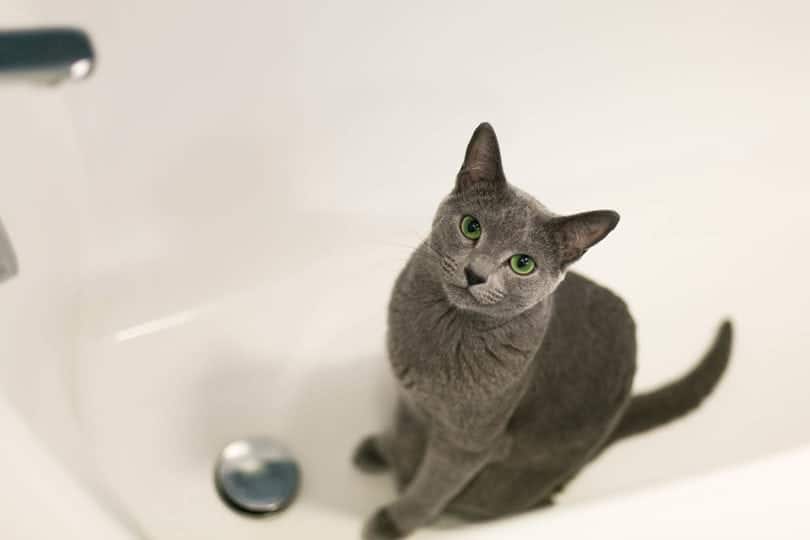
Maybe you’ve just come home to find your cat licking their chops as they causally walk out of the bathroom. Your heart drops as you remember you had put some bleach in the toilet water earlier today. So, can bleach hurt a cat?
The answer is actually a little more complicated than a simple “yes” or “no” and depends on a few factors. A large majority of cases can be managed at home, but some will need to be seen by a veterinarian—so read on to find out more.

What Should I Do If My Cat Licked or Drank Bleach?
- Don’t panic! The odds are that your cat is going to be okay, so the first thing to do is to take a deep breath before moving down this list.
- If they will let you, gently and quickly check your cat’s eyes, mouth, lips, and paws for any signs of irritation, as well as drooling or difficulty breathing.
- “The solution to pollution is dilution,” so if you have some tuna in your pantry, this would be a good time to whip it out and let them drink the water. If you don’t have tuna on hand, you can offer them a bit of diluted milk instead, if they will take it. This is to help rinse any residual chemicals from the mouth, tongue, and lining of the esophagus (food pipe) and stomach.
- If you suspect your cat has stepped in bleach, try to rinse off their paws with lukewarm water if they will let you, or wipe them off with a damp cloth if this doesn’t seem to bother them. This not only will rinse off the potential irritant from their paws, but it also means they won’t be ingesting more bleach by grooming themselves.
- Take a picture of the label and ingredients on the bleach bottle. This might be helpful later if you decide to take your cat to see the vet, as not all bleaches are made in the same way or concentrated at the same level.
- Most cats that have licked bleach off of the floor or their paws or drunk bleach water out of the toilet will respond to decontamination measures and feel better within 45 minutes to an hour. If this isn’t the case or if you know your cat drank straight-up, ultra-concentrated commercial-grade bleach, you should call your vet right away.

If you need to speak with a vet but can’t get to one, head over to PangoVet. It’s an online service where you can talk to a vet online and get the personalized advice you need for your pet — all at an affordable price!

How to Tell If Your Cat Drank Bleach
Cats that have been exposed to bleach can show a range of different signs, mostly depending on the concentration:
- Drooling or foaming at the mouth
- Tongue sticking out or looking swollen
- Redness and soreness of the lips and skin around the mouth
- Trouble eating
- Acting quiet and listless
- Rubbing their face and their mouth
- Squinting
- Sore-looking paws
- Vomiting, which occurs especially with non-chlorine bleach (also called “color-safe bleach”)
- In some rare cases, difficulty breathing or very rapid breathing

What Will Happen If a Cat Drinks Bleach?
In most cases, a cat that drinks bleach diluted in toilet water will start drooling profusely within minutes. Depending on how concentrated the bleach is and how much bleach water the cat actually drank, the irritation to the gums and lips may or may not be visible to the naked eye. A similar thing will generally happen if a cat steps into bleach and then licks it off their paws.
This being said, most cats that have drunk or licked diluted household bleach will recover quickly, especially if you got to it quickly and helped them rinse out their mouth. The drooling should improve within the hour. If it doesn’t or if you have any other concerns, you should consult with your vet.
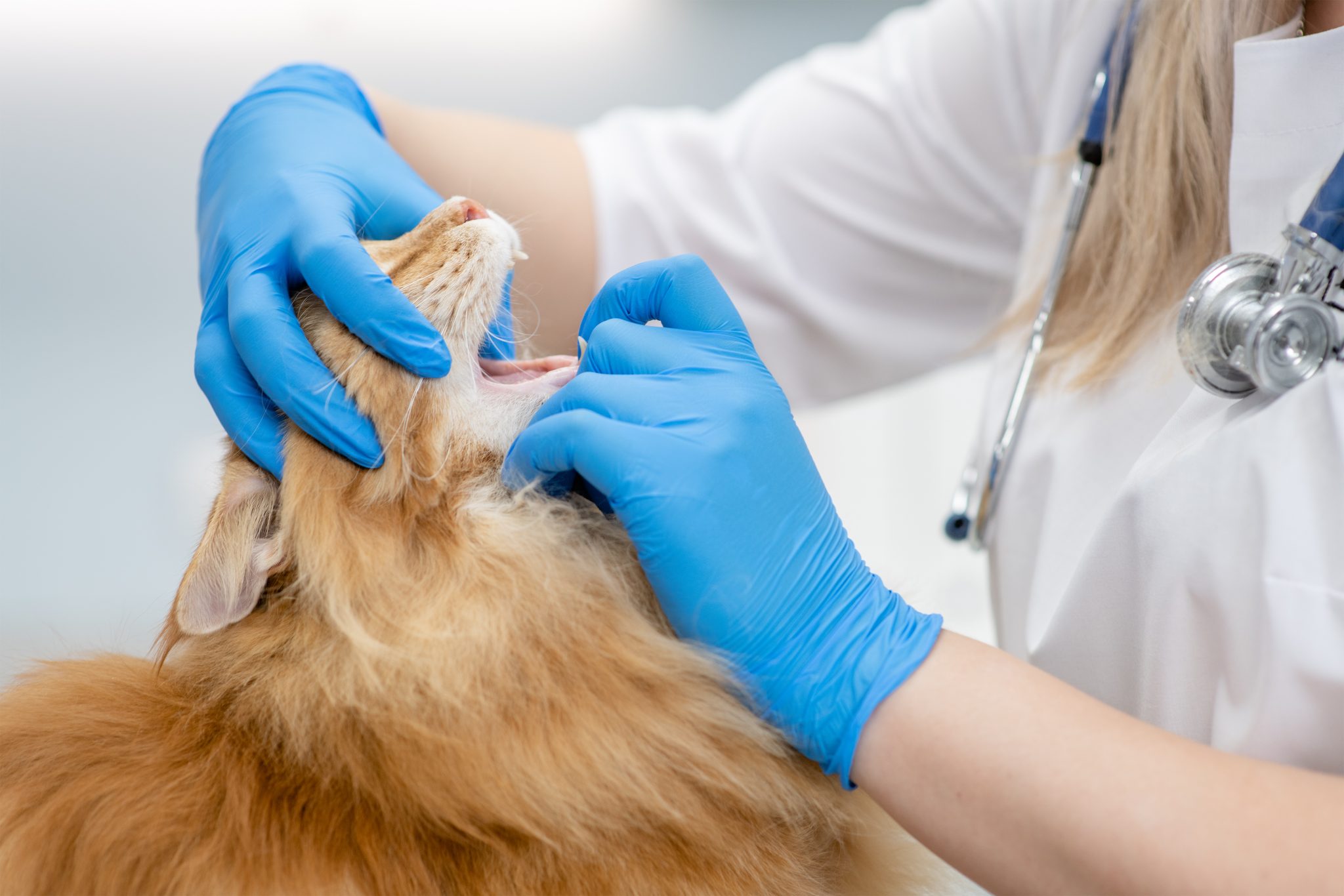
Frequently Asked Questions
Can the Smell of Bleach Hurt a Cat?
Even though bleach has a strong smell, it is very unlikely that sniffing a damp floor or taking a few whiffs from the toilet bowl will cause your cat any problems.
However, if you are worried that there has been more significant and prolonged exposure to concentrated bleach fumes, watch your cat closely for any signs of coughing, wheezing, or difficulty breathing. This is extremely uncommon and will start quite quickly, within the hour, after breathing the fumes. If your cat is showing any signs of breathing problems, it would be best to quickly call your vet right away to have them checked over.
Why Do Cats Love the Smell of Bleach?
While some cats want nothing to do with bleach and find the smell quite off-putting, many people report that their cat seems to go a bit loopy when their home has just been cleaned with bleach. They tend to behave as they would around catnip: rubbing, rolling, purring, racing, and even sometimes drooling a bit in delight. What is going on?
There is a good chance that for some of these cats, the faint smell of diluted chlorine bleach is reminiscent of certain pheromones, triggering a slightly undignified but often hilarious response. Rest easy, since unless they are exposed to concentrated amounts, this is completely safe.
Which Disinfectant Is Safe for Cats?
As far as actual, legitimate disinfectants go, you will be hard-pressed to find one that is safe for cats to lick or drink in its concentrated or bottled form. Even products labeled and marketed as “pet safe” need to be diluted before use and then allowed to dry before it is safe to expose our pets to the cleaned surfaces.
With this in mind, diluted bleach is actually considered quite safe for use at home around our feline friends. One could even argue that it is actually safer than other disinfectants, which might contain ingredients like phenols, quaternary ammonium compounds, or a long list of other potentially harmful ingredients.
As with most cleaning agents, the usual precautions should be observed to keep your cat safe: closing the lid of the toilet, excluding them from the area being cleaned until it dries, and keeping the concentrated bottle capped and tucked away so they don’t have access to it.
Can Cats Die If They Lick Bleach?
The short answer is, thankfully, that most cats will only have mild clinical signs after drinking bleach, and it’s very unlikely that a cat will die from licking bleach. Most household bleaches are only mildly irritating to the mucous membranes (gums, tongue, nose, eyes), especially when diluted, and rarely cause actual burns or significant damage.
This being said, if a cat were to breathe in a significant amount of concentrated bleach fumes or lick and swallow industrial-grade concentrated bleach, this could cause serious damage to their lungs or burn the lining of the esophagus and stomach.
If you have reason to believe your cat has been exposed to this kind of ultra-concentrated bleach, this is an emergency, and they should be seen by a vet as soon as possible.
Conclusion
Using diluted bleach to clean your house is still a great option if you have cats, but some precautions should be observed, especially if you have spotted that your cat likes the smell of chlorine! Thankfully, in most cases, if your cat has managed to lick or drink diluted household bleach, the adverse effects should be limited and resolved quickly. If you are concerned at all, though, you should call your veterinarian for peace of mind and further advice.
Related Reads:
- My Cat Ate Silica Gel! Here’s What to Do (Vet Answer)
- My Cat Ate Rat Poison: Symptoms & What to Do (Vet Answer)
Featured Image Credit: LightField Studios, Shutterstock
Contents
- Can Bleach Hurt a Cat?
- What Should I Do If My Cat Licked or Drank Bleach?
- How to Tell If Your Cat Drank Bleach
- What Will Happen If a Cat Drinks Bleach?
- Frequently Asked Questions
- Can the Smell of Bleach Hurt a Cat?
- Why Do Cats Love the Smell of Bleach?
- Which Disinfectant Is Safe for Cats?
- Can Cats Die If They Lick Bleach?
- Conclusion

